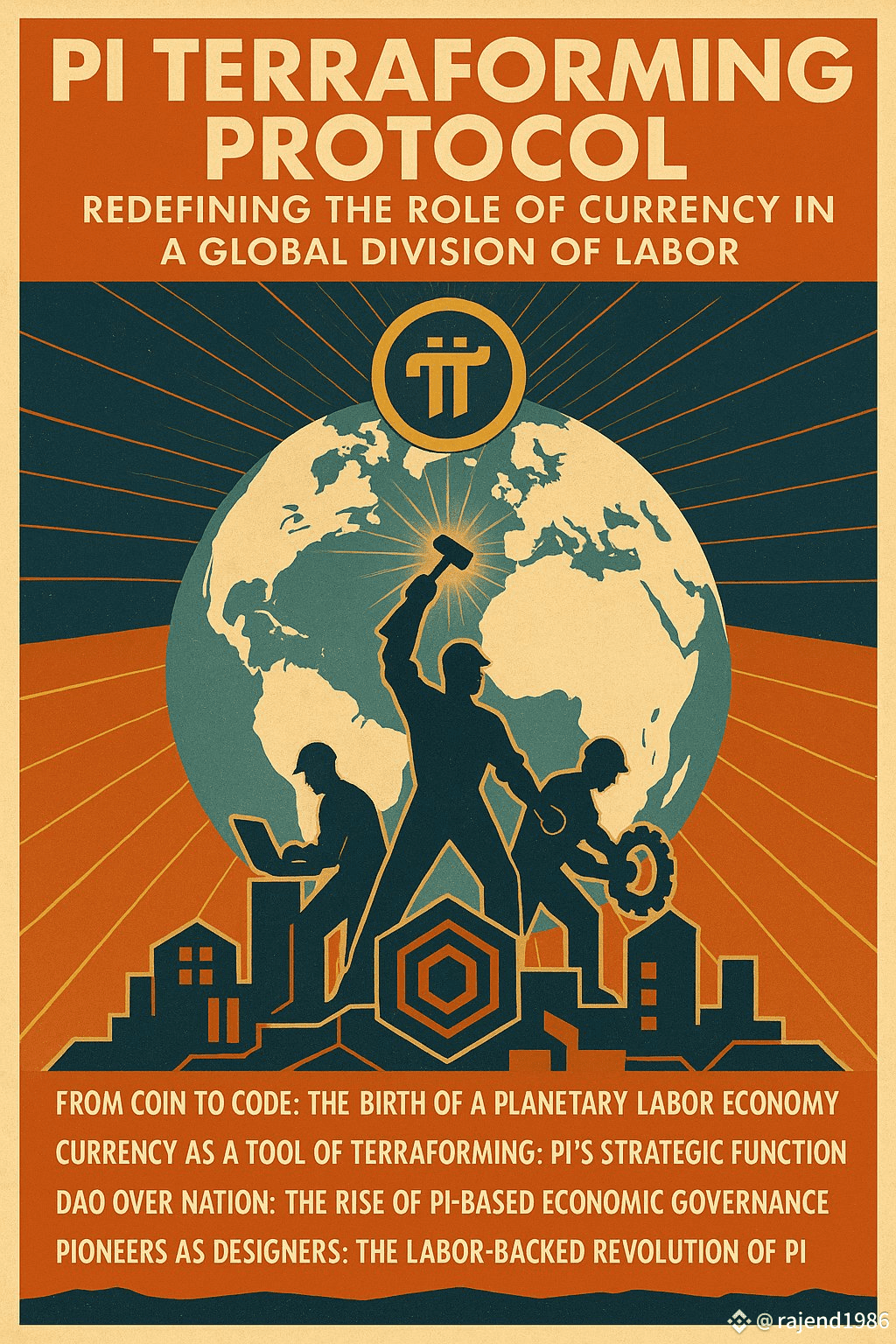Pi Transforming Protocol: Redefining the Role of Currency in a Global Division of Labor
From Coin to Code: The Birth of a Planetary Labor Economy
Currency as a Tool of Terraforming: Pi’s Strategic Function
DAO over Nation: The Rise of Pi-Based Economic Governance
Pioneers as Designers: The Labor-Backed Revolution of Pi
[ This article includes predictive analysis and may differ from actual outcomes. ]

1. A Currency No Longer Rooted in History
Forget all prior forms of money.
Humanity has long used currency to coordinate resource distribution and labor specialization. As Adam Smith argued in *The Wealth of Nations*, money’s original role was to facilitate **division of labor**—a function rooted in geography, sovereignty, and state-backed institutions.
However, **Pi Network is not simply creating a new form of currency**. It is attempting something far more profound:
A **global terraform of value exchange**, by reprogramming the infrastructure of labor, trust, and reward across borders, identities, and institutions.
2. Redesigning Division of Labor: From State to Individual and DAO
Pi redefines the economic engine not through capital, but through **verified human participation**, contribution, and value creation. The traditional sovereign unit—**nation-states and corporations**—are being superseded by:
* Individuals with verified identities (real humans)
* Decentralized Autonomous Organizations (DAOs)
* Stake-based democratic governance
* Universal accessibility and programmable incentives
Here, **Pi becomes the core economic fabric**—not just as a medium of exchange, but as the protocol through which **division of labor and resource distribution** are orchestrated in a post-sovereign world.
3. Terraforming the Monetary Regime
This is **not** a new financial product.
This is **terraforming the very architecture of value**:
* **Who is authorized to issue and allocate value?**
* **How is labor recorded and rewarded?**
* **What structures govern the trust between actors?**
Through the Pi Nexus Autonomous Banking Network, these answers become algorithmic, decentralized, and composable—replacing the monopoly of state currencies with a **programmable, globally interoperable resource protocol**.
4. Pioneers as Frontline Architects
Dr. Nicolas Kokkalis’ famous statement—
“True pioneers will enjoy the full benefits of Web3.”
—was not simply an invitation to mine Pi. It was a **call to arms**:
To take part in the **redesign of global economic memory**.
Pioneers are not speculators.
They are **terraformers of a new order**—establishing economic fault lines not around capital concentration, but around distributed, labor-centric governance.
* Mining = Trust validation
* DAO participation = Governance labor
* Pi rewards = Resource allocation engine
Each pioneer becomes a **core node in a globally synchronized economic brain**.
5. The Rise of Labor-Backed Monetary Design
This is not capitalism.
This is not socialism.
This is **a programmable meritocracy of verified effort**.
The Pi protocol encodes a new ethic:
* You are not rewarded for what you hold.
* You are rewarded for what you contribute.
This changes the structure of value:
**Pi is not a store of past capital, but a stream of current labor.**
And because this stream never dries—due to 20% APY staking, ultra-low transaction fees, and automated network rebates—**economic power is continuously redistributed to those who sustain the network**.
Conclusion: Pi is the Terraforming Protocol of Earth’s Next Economy
In this context, currency is not a medium of exchange.
It is the **architecture of cooperation**.
And Pi is that architecture.
Pioneers are not coin collectors.
They are architects of the **digital infrastructure for a redivided planet**.
A planet where **trust, labor, and governance are decentralized**, yet globally synchronized.
And thus, the question is not whether Pi will dominate—it is:
**Will you help terraform the next economy, or be left behind in the ruins of the old?**